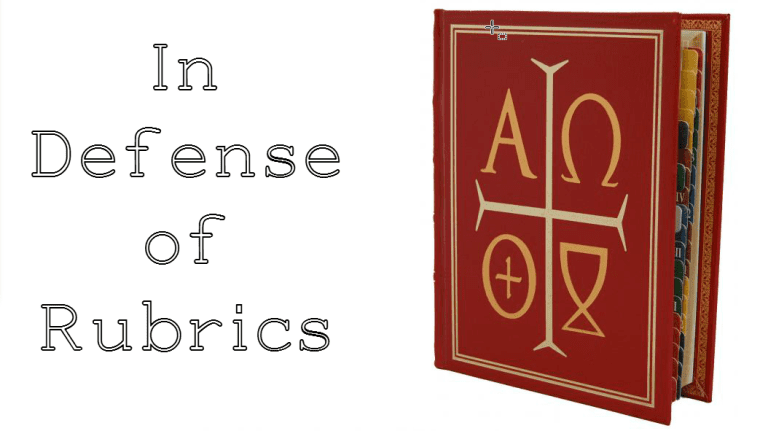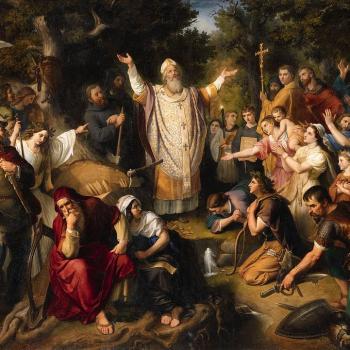One of the main reasons I love to study liturgy is it equips me to do theology in the first person plural. Liturgy is a communal Theologica Prima. It is an ecclesial encounter of the I and Thou relationship of God and humanity. It is an expression of life with God that cascades across the communion of saints through every age. I love it. This is why I always find it interesting that so many people find what I study to be “boring” or “uninteresting.” They can’t imagine what could be fascinating about the liturgy. To them all they see is the study of old texts. They wonder why I would bother with such the cultic record of what they see as a superstitious backward Church. Why bother with other people’s prayers when one can pray in one’s own words today.
Although there is much more to liturgical theology than simply the study of texts, there is a great benefit to learning about the written prayers and directions in worship. This corpus, often referred to as the lex orandi opens new avenues for understanding and encountering God. Here are four of the reasons I think knowing the lex orandi of the church is useful for all people of faith.
- Texts dictate our acoustics: I am a musician, and as a musician I know that the first thing I need to do when I walk into a space I will be performing in is to clap. I clap because it allows me to hear how the space I am in treats sound. I listen for how the sound of my clap echoes of the surfaces around the room. The study of texts is like clapping in the sacred space of Christian Worship. It allows us to see and identify the language, often strange and different, that will echo and resound with our own praise. It has a literary character that offers windows into different worlds.
- Texts are our well: Unlike the vocabulary that dictates most everyday conversation, liturgical language has depth and life. Liturgical language brings out the tension of poetry. It incorporates symbols which are primordial and polyvalent. It communicates through flesh, blood, light, water, birth, death, eating, drinking, hunger and thirst. These symbols are not seeking to emulate the ephemeral but they encompass our entire existence. Too often if we were left with words of our own devising we would be unable communicate the depth of the mystery of Jesus’ life, death and resurrection. The church offers us a well of poetic language to draw into ourselves and open up windows to heaven.
- Texts are the Rules that allow us to play: I am not a jock, and never have been, but I absolutely love the game of Baseball. My love for the sport is deep and it grows every year. I love it because of the rules. There are strict rules and demarcations. These Rules allow for the game to function. Without strict adherence to the rules, the game would be chaos, players would get injured and tempers would undoubtable flair. The rules allow for constructive creativity, excitement and fun. Liturgy is similar. It gives guidelines in order that the assembly might be more free to love God and one another. To craft the texts of the liturgy with artistry is truly a task of inspiration. The texts are a way that the life of the Church is safeguarded and nourished.
- Texts are the clothes we grow into: I have a bin of clothes which are too big for my kids. It’s made up of gifts, hand-me-downs, and even a few mistaken purchases. I keep the bin because I have hope that my children will continue to grow, and that someday the clothes will fit them. Studying liturgical texts can often feel like trying on clothes that are too big. The words don’t seem to fit us, but the offer a hope that we will continue to live and grow. The power of studying the words is that in learning the words we are able to grow into them all the better.













